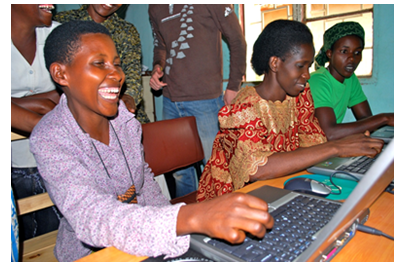A few of the key factors for promoting entrepreneurship are rich social networks and access to finance, typically addressed in Low-Income Countries (LICs) with the provision of microfinance. However, there is a widespread view amongst researchers that microfinance alone has not been successful in triggering truly entrepreneurial activity. Enterprise development requires not only capital, but also ideas and synergies, which arise from rich social networks. This project aims to test the idea that social networks promote enterprise growth by exposing Ghanaian entrepreneurs to software equipped with virtual social networks such as Facebook.
The research team carries out a Randomized Controlled Experiment in ten villages in Ghana by creating three groups: one treatment group in which participants enjoy access to microfinance, a specially-created social network application designed for the sharing of ideas and joint entrepreneurship projects, and full Internet access; one control group in which participants have access to microfinance and the Internet, but not the social network application; and a second control group in which individuals only have access to microfinance.
If the treatment proves effective and promotes innovative entrepreneurship within these villages, this approach has significant policy implications. Propagation of virtual social networks could be a very cost-effective tool for development policy.
This project is now being funded by a recently awarded PEDL Major Grant, and the research team is collaborating with the Mara Foundation and the open-source software development project Rocket.Chat to carry out the full experiment.









